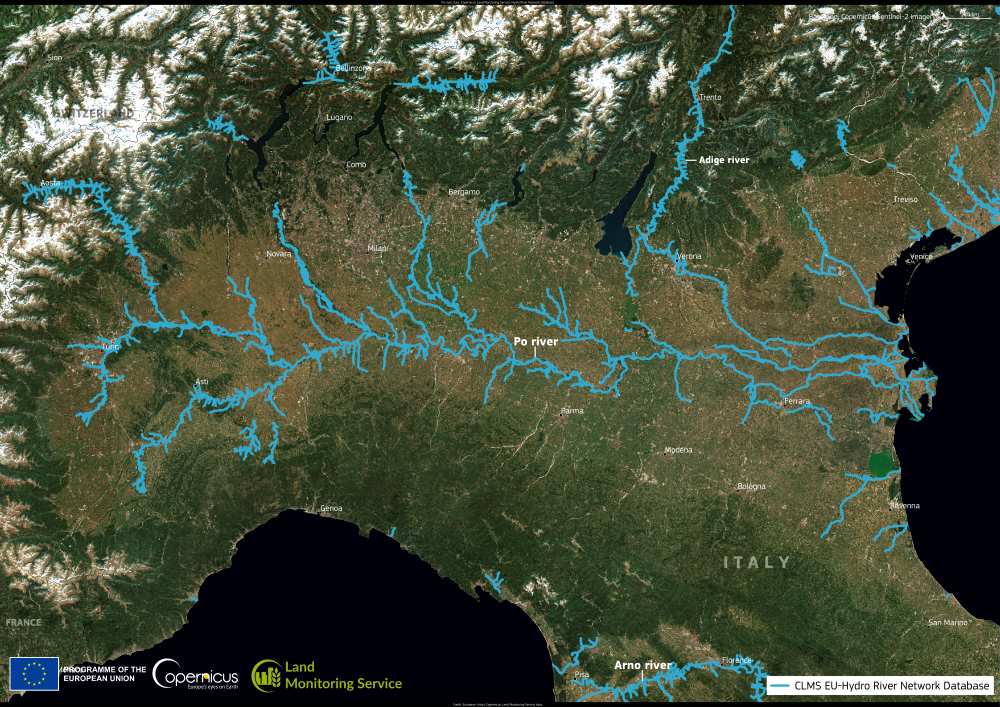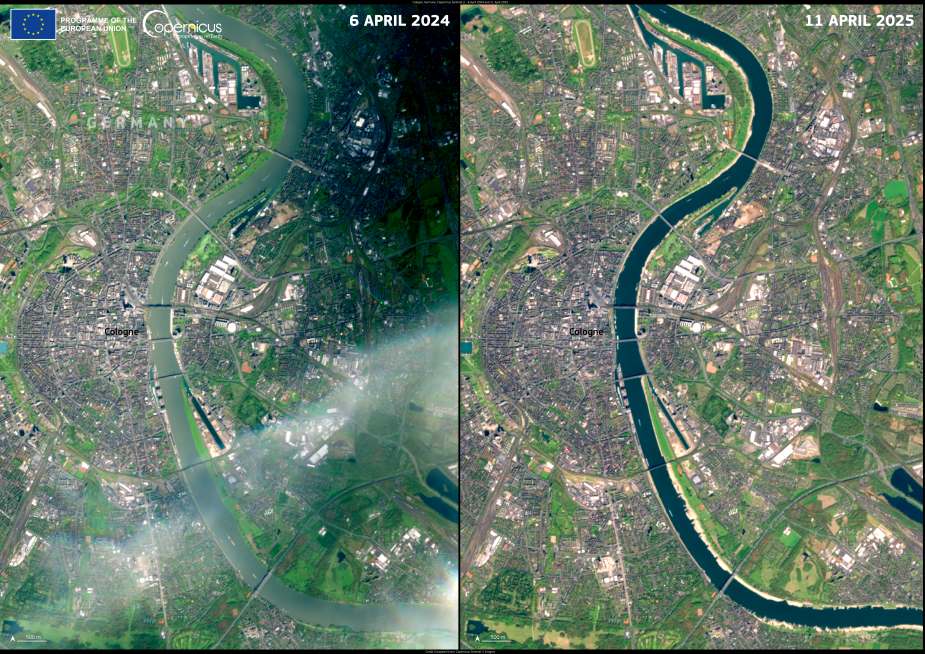The Po River, Italy’s longest river, has shaped the country’s landscape and history for centuries. Originating in the Monte Viso group of the Cottian Alps, it stretches 652 km (405 miles) across northern Italy before emptying into the Adriatic Sea. Its vast drainage basin, covering over 70,000 km2, forms the most fertile plain in the country and supports agriculture, industry, and biodiversity.
The river’s upper course is steep and fast-flowing, dropping 1,700 meters in just 35 km before passing through Turin. From there, it meanders eastward, receiving tributaries such as the Ticino, Adda, and Oglio. Over time, the Po has carried vast amounts of sediment, extending its delta by an estimated 80 hectares per year. This natural process has pushed historic coastal cities like Ravenna several kilometers inland. Flooding and silt management have long been challenges, with engineering projects dating back to the Venetian Republic and modern reclamation efforts reshaping the delta’s wetlands.
The Po serves as a natural boundary between the regions of Lombardy, Emilia-Romagna, and Veneto, influencing both their economies and ecosystems. Many of its southern tributaries, including the Tanaro and Trebbia, are rain-fed and prone to seasonal fluctuations, contributing to the river’s complex hydrology. Its meandering path has created oxbow lakes, further enriching the landscape.

This image of northern Italy, produced with data from the Copernicus Land Monitoring Service Hydro River Network Database, captures the Po River and its tributaries.
Copernicus data plays a crucial role in tracking global water bodies, providing essential insights for conservation and sustainable water management.
Featured image credit: European Union, Copernicus Land Monitoring Data



